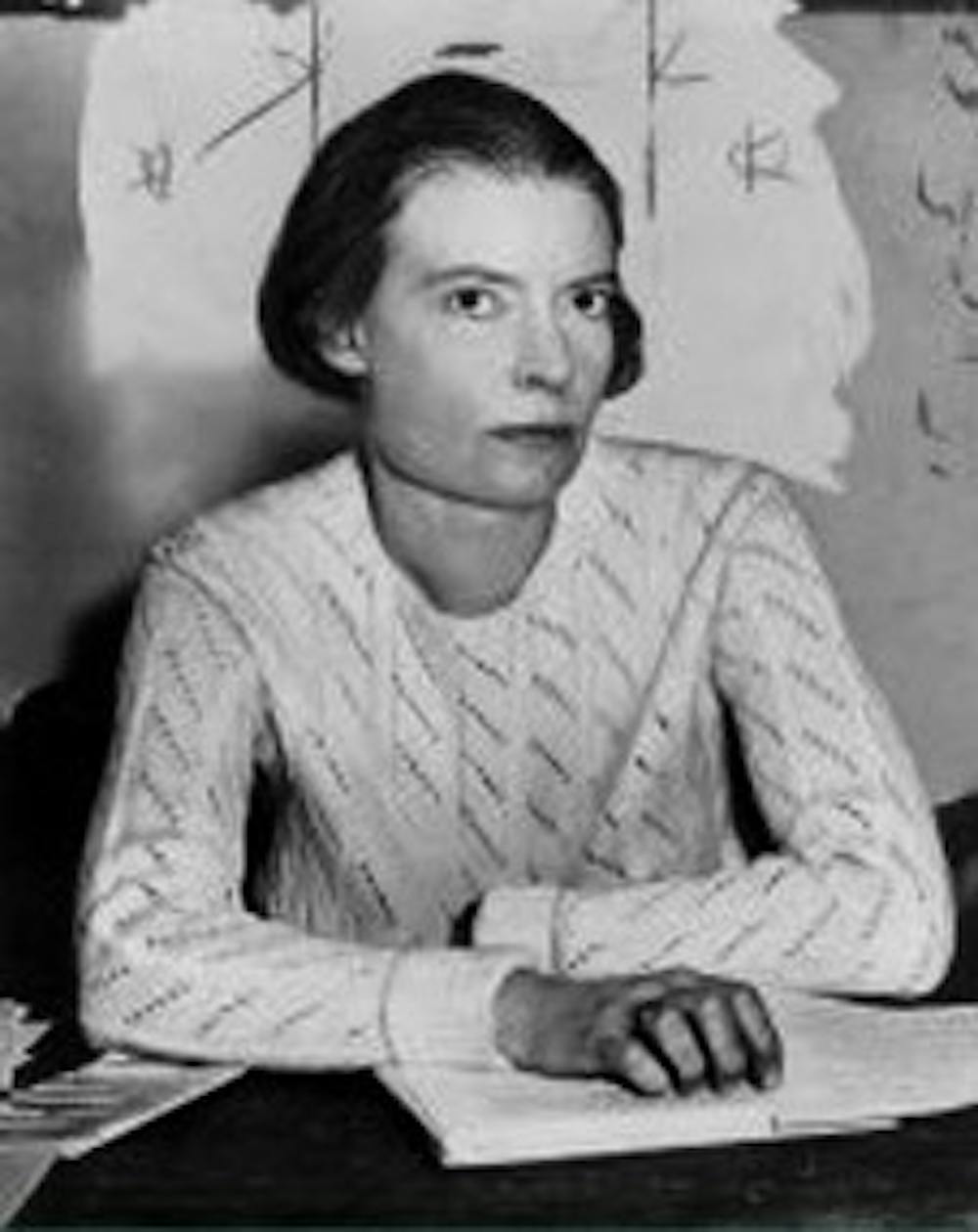Dorothy Day, writer and activist, founded the Catholic Worker Movement in 1933. (Photo Courtesy of PBS)
By Enid Spitz, Staff Writer -- spitz13@up.edu
Dorothy Day was a controversial activist, progressive journalist, and possibly the first "hippie." Now she's also on her way to sainthood.
The Garaventa Center for Catholic Intellectual Life and American Culture begins its 2010 lecture series tonight at 7:30 in the Buckley Center Auditorium. Patrick Jordan, Managing editor of Commonweal Magazine, will speak about his friend and coworker Dorothy Day (1897-1980), an influential Catholic convert.
So, why is her life so important to the Catholic Church and the UP community?
If you've ever been by the Blanchet House downtown, you have witnessed Day's philosophy in Portland. The University's mission statement reflects her life's work, which exemplified faith and service.
"What she did was timeless," Jamie Powell, director of the Garaventa Center, said.
Living in New York, Day was an active part of the pacifist and women's suffrage movements through the 1930s. She followed in her family's footsteps as a journalist and focused on social reform.
Day was also an acknowledged agnostic, but, almost 30 years into her life, conversion brought a whole new aspect to Day.
She thought she was unable to have children until, in 1926, Day gave birth to her daughter, Tamar Teresa. This event caused her to search for a religious community, and she found the Catholic Church. A year later, in 1927, Day solidified her discovery of Catholicism by being baptized.
As a convert, Day became a prominent social justice worker. She wrote for the Commonweal Catholic Magazine and advocated rights for the homeless.
Eventually, Day founded the Catholic Worker Movement which created housing and aid for marginalized people. Her legacy remains around the United States today and inspired various organizations like the Blanchet House, a service organization started by two UP alumni that provides food and shelter for struggling Portlanders.
Ralph Bliquez, a member of the UP Board of Regents, introduced the Garaventa Center to the Commonweal Speakers Program, a group of intellectuals that travel around the nation, educating people about social justice.
"We're addressing the question of what does it mean to be a Catholic University," Powell said. "We bring in different speakers that combine our faith and culture."
Faith and service, as in the past, are central to UP's newly revised mission statement. With its Moreau Center for Service and Leadership, various retreats and plunges, UP prides itself on being a service-oriented campus.
"We have such a high percentage of students who do service," Powell said. "The students, with your youth and vibrancy, are so motivated toward social justice."
For students, role models like Day can help provide that inspiration.
"She's everyone's hero in social justice," said sophomore Janie Oliphant, the Service and Justice Coordinator for Kenna Hall. "She's like on the cover of the textbook."
The Garaventa Center is excited for this first lecture of the year, which Powell described as a special treat. The Center hopes the students will take advantage of this opportunity to become inspired by Day and act for social justice.








